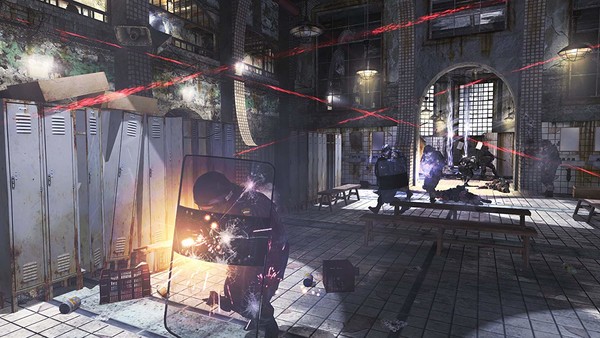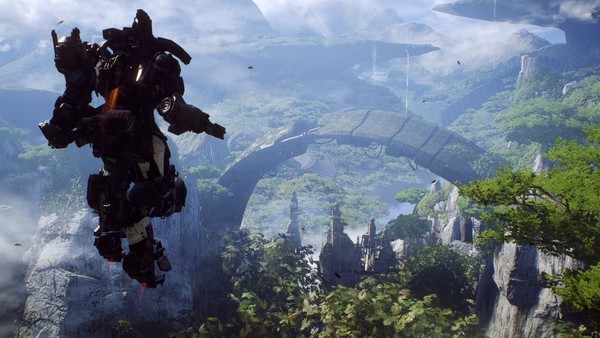The Insulting Poison Of Corporate Video Games

For every Call of Duty – itself a popular brand through years of experimentation until fourth main instalment Modern Warfare was the one that blew up – there are endless examples like Crackdown 3, Agents of Mayhem, Destiny. Even Ubisoft refined their formula until it could be copy-pasted across their various franchises, then set about doing exactly that until production turnaround time resulted in characters’ faces falling off.
This corporate influence is OBVIOUS, and in Anthem’s case, it governs everything from quips-per-minute to third act downer moments in the script, to four-colour loot systems and everything in between.
The really twisted thing, though? Because of the sheer time required to make a game of Anthem’s scope, scale and at one point, potential calibre, there’s a level of human investment that does shine through in spots.

Talented people made Anthem, there’s no question about it, and the various ongoing conversations surrounding unionisation, developer crunch and mass layoffs is an attempt by those with the most talent, to wrench back control of their own careers.
Anthem's world design shows potential; the quality-tested flight mechanics have a sublime sense of locomotion, weight and response. The shooting is what Bioware started with Mass Effect perfected, only for that to be stretched to breaking point across a play-time that could be anything from 10 to 100 hours and beyond.
The thing that’s right there, gnawing away at this hide n’ seek authenticity, is a pungent stink of corporate directives clashing with the reasons we like to play games in the first place.
Look to EA’s handling of Project Ragtag; ex-Uncharted director Amy Hennig and Visceral’s Star Wars game that was canned in 2018. Amidst development, Hennig was told – during a presentation on the game’s characters, world and story – that "FIFA Ultimate Team makes a billion dollars a year. Where’s your version of that?”
Such a brazen, dollar-chasing approach is what killed the DC Universe as they ran to chase after the MCU. It’s what killed Cliff Bleszinski’s Radical Heights as he thought it would be financially viable to “cash-in” on the battle royale genre. It’s what kills every copycat so blatantly leaning over and ripping off their contemporary’s homework, only to thrust their hand up and claim they’ve come up with something special.
Cont.